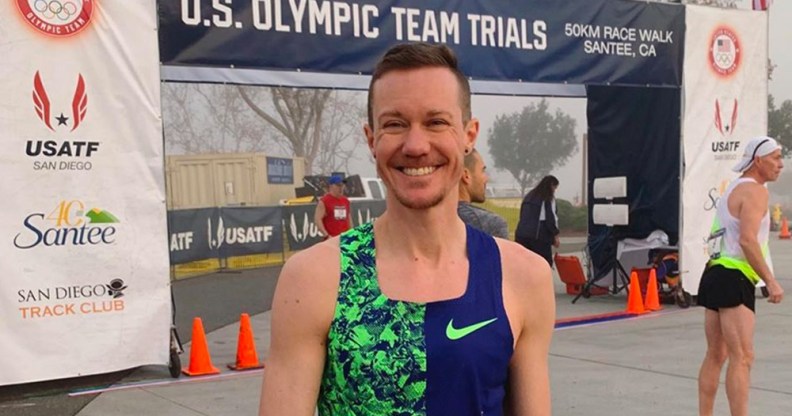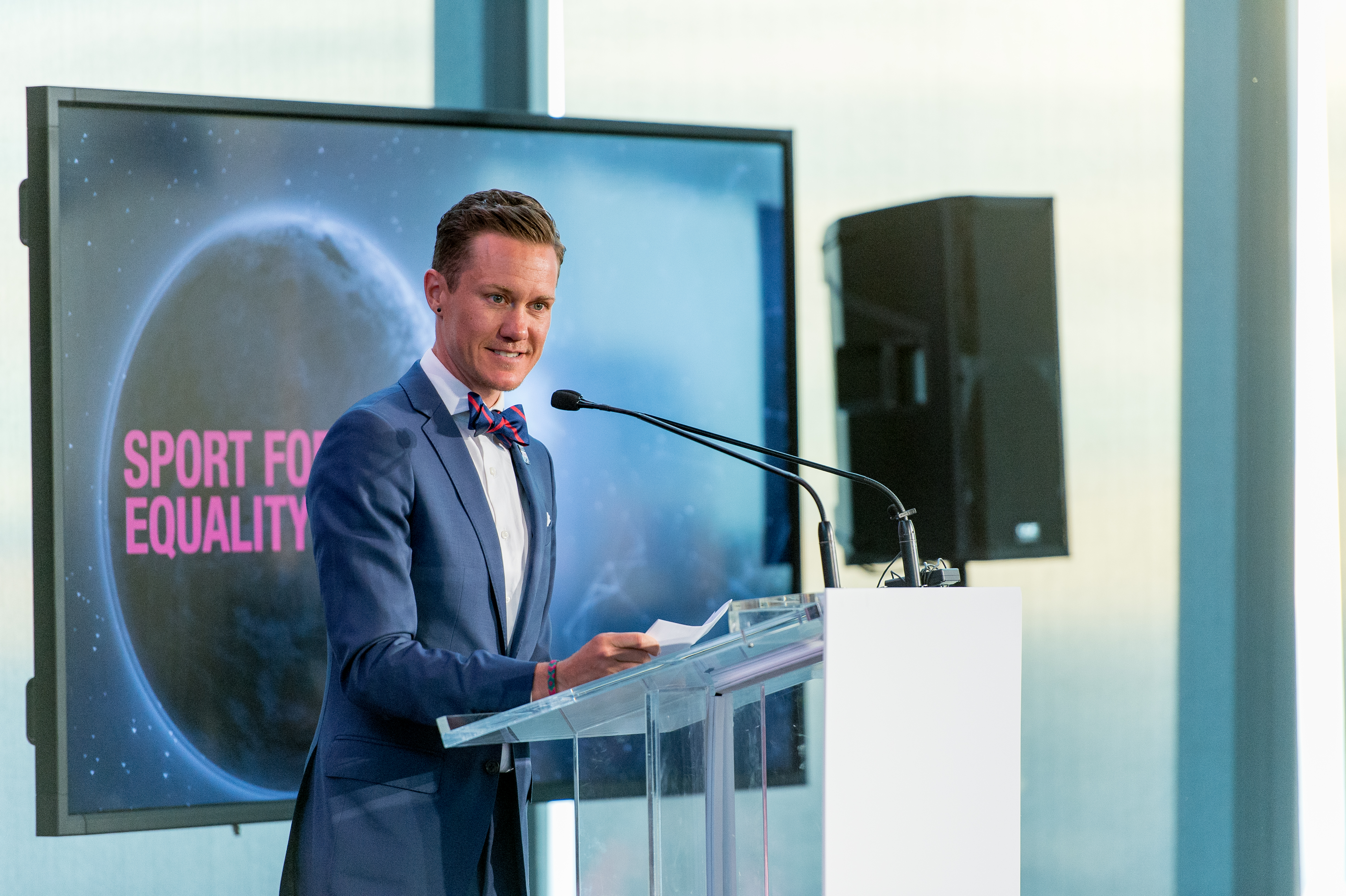Pioneering transgender athlete says there’s a simple reason trans men are treated differently to trans women in sport

Chris Mosier at the starting line of the 50km race walking Olympic trial. (Instagram/Chris Mosier)
Transgender athlete Chris Mosier has said that he delayed transitioning because he feared that sport would be “taken away” from him.
Mosier started out his career competing in women’s duathlons before realising he was transgender – and after fighting for the right to switch to men’s races, became the first transgender man to represent the US internationally and qualify for the racewalking Olympic trials.
Speaking on the BBC’s LGBT Sport Podcast, Mosier reflected on his earlier years in the sport: “When I won my first race, I was embarrassed to tell people that I won, because I won in a women’s category. Sport reflected back to me the discrepancies between how I viewed myself and how the world viewed me.
“When I was thinking about transitioning, I was doing pretty well as a female athlete at that time, and that competitive part of me wanted to see if I could fulfil those athletic dreams from when I was a kid, but when I looked, I didn’t see any trans men competing with men.”
Mosier explained that one of his biggest fears while transitioning was grappling with regulations preventing him from taking part in men’s races, adding: “I delayed my transition for a year and a half after I knew I was trans, because I was terrified that I would lose sport.
“I never thought I’d walk away from it. I thought it would be taken away from me.”
Ultimately, Mosier succeeded in forcing a change to IOC rules in order to include trans athletes – and became the two-time men’s national champion.
Chris Mosier says his achievements are largely ignored – while trans women are targeted
But Mosier said he has received a lot less attention for his accomplishments than is often afforded to trans woman who are vilified simply for wanting to compete in sport at all.
He said: “I think it’s really interesting to see how trans men are viewed in sport versus trans woman, because there are trans women out there who haven’t made Team USA but just simply want to participate in sport, and the amount of attention they receive is outrageous, and mostly negative. That’s been very different to my experience.
“While I don’t have a huge profile, I have a lot of positive interactions. A lot of people just shrug when they hear that I’m a trans man on the men’s national team and a two-time men’s national champion. There’s still still so much sexism that’s ingrained in sport, and it’s been both to my benefit and to my detriment in a lot of ways.
“People don’t think someone assigned female at birth could ever be competitive with someone assigned male at birth, and I think that’s why we see discrimination against trans women. People believe they have some sort of advantage over any other women, which is simply not true. People often don’t talk about me or my case because I don’t support their views.”

Chris Mosier presents the Sport for Equality Award during the Beyond Sport Global Awards on July 26, 2017 in New York City. (Photo by Roy Rochlin/Getty Images)
Athlete says he is fuelled during races by his hope to succeed for the trans community.
The athlete said that the battle for basic acceptance in sport provided fuel as he sought a spot on Team USA.
He said: “I often think about the four minute mile… once Roger Bannister broke it, numerous people did it after him. And I think that, if someone can do it, why can’t it be me? Even though I didn’t see that example for myself, maybe I can be that example for other people?
“What drives me to succeed is that I know I can make it easier for everyone who comes after me, and there’s something really empowering about that.”
Mosier continued: “It really helped me to stay motivated and persevere when the race became difficult, because I thought, ‘This isn’t just for me, it’s for my community as well.’
“There’s something really powerful about it being about something bigger than yourself – and I couldn’t back off, because I knew all these other folk were relying on me… which was a great deal of pressure to put on myself.”

